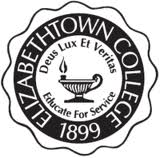
Incredible Writing Journey
Who would have thought where my journey would take me when I began writing my first blog “New Beginnings” on Saturday, August 15, 2009? In a little over 4 years I have written 500 blogs dealing either with the topic about the five fold or about mental health and the Church! How can so much be written about basically one topic?
 That’s the power and creativity of the Holy Spirit, for the truths about five fold are only beginning to be unfolded. I still believe the five fold is the wave of the future for the Christian Church. I truly believe the Church is in a metamorphosis stage from being a cumbersome religious institutional structure of hierarchy leadership to entering a cocoon of structural transformation that will release a sleek, hard shelled structure for flight. The structure of the Church will be changed from hierarchal to linear. Church leaders will no longer be looked as spiritual giants hovering over their people but walk beside them. Leadership will no longer demand respect but earn it, for they will be willing to lay down their lives for their common brethren.
That’s the power and creativity of the Holy Spirit, for the truths about five fold are only beginning to be unfolded. I still believe the five fold is the wave of the future for the Christian Church. I truly believe the Church is in a metamorphosis stage from being a cumbersome religious institutional structure of hierarchy leadership to entering a cocoon of structural transformation that will release a sleek, hard shelled structure for flight. The structure of the Church will be changed from hierarchal to linear. Church leaders will no longer be looked as spiritual giants hovering over their people but walk beside them. Leadership will no longer demand respect but earn it, for they will be willing to lay down their lives for their common brethren.
The Church in China knows the cost of laying down one’s life for their brethren after the persecution they endured over the last seventy years, and amazingly this blog cite gets more “hits” from China than any other country, and I thank my Chinese brethren for faithfully reading this blog and tweeting it to others. It is an honor to be a part of your social networking family. The Church of China has become part of my heart and spirit’s cry, and I pray for you daily.
 Since we are only entering the cocoon stage, more change is in store, so I am sure more blog pages will flow. The themes may be the same in many of the blogs, but the content is growing. I would encourage “comments” to the blogs from my readers, for I would love to know how the five fold is being manifested among our Chinese brethren and in other parts of the world. Where churches are open to the Holy Spirit and are obedient to his directions, change will come naturally and powerfully, and we, the Church, need to hear your story. E-mail your story to me or through an attachment at popnozall@gmail.com and I might post it as a blog!
Since we are only entering the cocoon stage, more change is in store, so I am sure more blog pages will flow. The themes may be the same in many of the blogs, but the content is growing. I would encourage “comments” to the blogs from my readers, for I would love to know how the five fold is being manifested among our Chinese brethren and in other parts of the world. Where churches are open to the Holy Spirit and are obedient to his directions, change will come naturally and powerfully, and we, the Church, need to hear your story. E-mail your story to me or through an attachment at popnozall@gmail.com and I might post it as a blog!
I will also post blog entries on the topic of mental illness and the Church's role. Mentall Illness is the lepordsy of our time, the socially unaccepted disease in many countries due to the stigma of not knowing what to do with it. The Church wrestles with that stigma, but "Grace", "Compassion", and "Mercy" are the keys to reaching out to those fighting that dreadful disease effecting the mind and the stigma surrounding it.
God is a Creator. Jesus is Lord of His Creation. The Holy Spirit of Jesus Christ is creative. This blog cite is dedicated to honor and glorify the Creator, through his creative creation, that which His Spirit is doing in our generation throughout the world.
 Thanks again for being a part of my continual journey of exploration into this topic, and I hope you continue to read what the Spirit motivates and inspires me to write, and join in social networking the Church together throughout the world. May the Lord bless you and keep you in His love!
Thanks again for being a part of my continual journey of exploration into this topic, and I hope you continue to read what the Spirit motivates and inspires me to write, and join in social networking the Church together throughout the world. May the Lord bless you and keep you in His love!
Anthony Bachman, blog’s author





























































